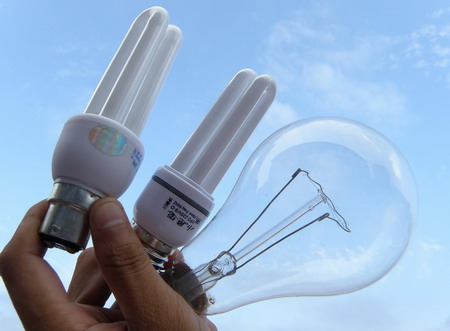Top Biz News
Firm benefits from self-owned brand for lamps
(China Daily/Xinhua)
Updated: 2009-11-02 08:43
|
 Energy-saving lamps made by Zhejiang Yankon, the country's largest producer of energy-saving lamps. The company started to bulid its self-owned brand as a long-term strategy for success. [File Photo] |
Wu Guomin profited for at least a decade by producing lamps under the big brands of "Philips" or "Wipro". But that was before the financial crisis.
After an array of trade barriers that hurt his company, Wu, vice president of Zhejiang Yankon, China's largest producer of energy-saving lamps, decided in September to brand its lamps as "Energetic" in electricity-strapped India.
"It took years for us to realize that a self-owned brand is the formula for long-term success for Chinese exporters," Wu told Xinhua at the recent Canton Fair in Guangzhou City.
"To push for our own brand is a must, not an alternative," Wu said.
Yankon produced 300 million bulbs annually, about 60 percent of which were for exports. But more than half of them were sold under other foreign big name, which outsourced their businesses to countries with low labor costs.
Many Chinese exporters had a similar story. Without self-owned names, they had to serve as workshops for the world's big brands.
In 2002, India imposed anti-dumping tariffs on made-in-China lamps to make way for their domestic producers.
Although imports from China were slashed from 5 million a year to 1 million as a result, Chinese exporters still had a niche in India.
But this year, the situation became worse when India added an average 50 percent anti-dumping tax on burners -- a key component of lamps -- imported from China. That meant Yankon's products would be unavailable in a country with a huge demand for energy-efficient lamps.
Made-in-China goods have frequently been the targets of anti-dumping investigations, based on the argument that their lower prices could threaten domestic producers in the importing nations.
Then Yankon suffered another pinch of its OEM (original equipment manufacturer) business model after its overseas orders were slashed by half in May, during the worst days of the global financial crisis.
"Without the self-owned brand, we are the most vulnerable in the face of the slightest market changes," said Wu, who added that he became determined to launch a global brand offensive.
Improved durability and reasonable prices make "Energetic" lamps quickly accepted by Indian consumers, he said.
The 1 million bulbs churned out in Yankon's factory 70 kilometers south of New Delhi is far from enough to meet rocketing market demand, he said.
"Under the OEM model, we sold a lamp for $1 in India and made 10 cents of it in profits. Now we have doubled the prices with our Energetic icon, and earn 20 percent to 30 percent in profits for every sale," Wu said.
Before Yankon encountered those hardships, the company was satisfied with its OEM model and simply waited for big names to pick it up.
"Years later, the head-on competition forced us to adopt more proactive and aggressive tactics," he said.
With the success of its self-owned brand, Yankon now is considering expanding its brand presence to the United States and European Union, and to emerging markets such as the Middle East and South America.
The company's goal is to sell half its products made under the self-owned brand to overseas markets by the end of 2018.
Energetic's global reach will not come easily. Wu will have to counter obstacles in the US and European markets, where there is strong competition among industrial giants.
The company knows that it is unrealistic to stop its OEM business in the short-run, since that business is its "cornerstone", Wu said.
Self-owned brands and OEM should be developed at the same time, he said.
"Someday Yankon will become an outsourcer, instead of an outsourcee," Wu added.













